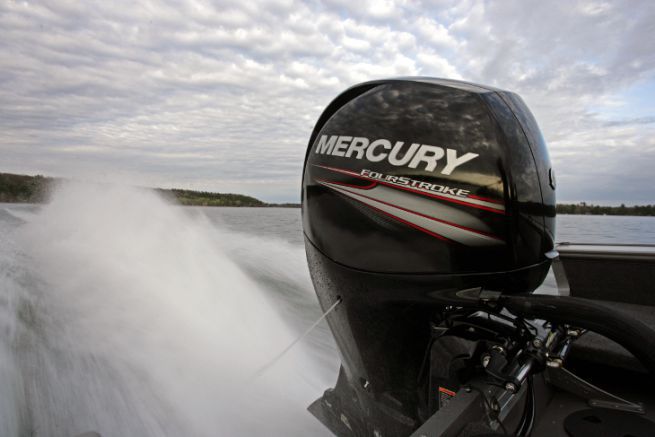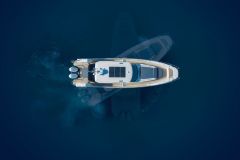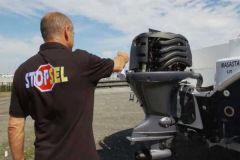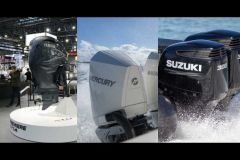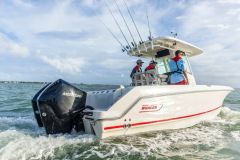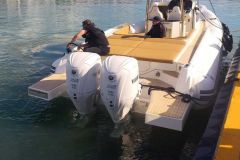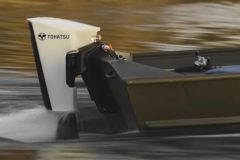Erwan Beros took over responsibility for Mercury Marine France's after-sales department in August 2018. With a background in the automotive industry, he shares with BoatIndustry readers his perception of the yachting and boating environment, with a fresh eye.
Can you tell us about your career before joining the Mercury Marine France after-sales service department?
After a DESS in automotive engineering, I worked for 15 years at PSA, always in the field of after-sales service. At first, I worked on the preparation of the after-sales service during the vehicle design phase, to ensure that spare parts and repair methods were available when the model was released. I then moved to a position in incident and breakdown summary. This involves managing feedback from the thousands of sales outlets in the network to understand what they have done and what they need to do about breakdowns. Finally, I managed a technical assistance platform for the network in Asia Pacific, which supports the dealers in responding to problems encountered.
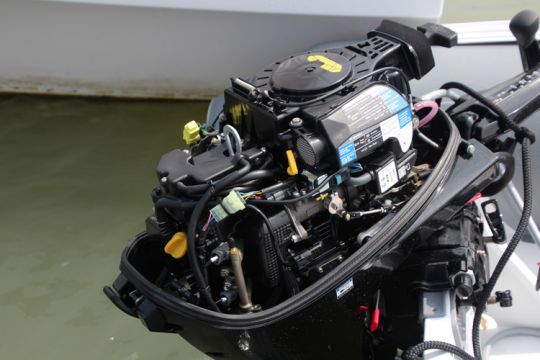
What made you want to get into boating?
I had the feeling, perhaps a little presumptuous, that I had done all I could about cars, and the desire to discover a new world. Without talking about a passion, marine engines are products that have always appealed to me. They are attractive technologies with nice noises. From a personal point of view, I also wanted to leave the Paris area.
What are for you the most striking differences with the automobile when you arrive in the yachting industry?
The first is the difference in the size of the structure, whether in the front or back office. For my job, at PSA, there were 100 people. The size of the dealerships is also very different.
The automobile is a finished product. The cars that come out are identical. In boating, there is a lot of prototyping. All the boats are different. It's more artisanal.
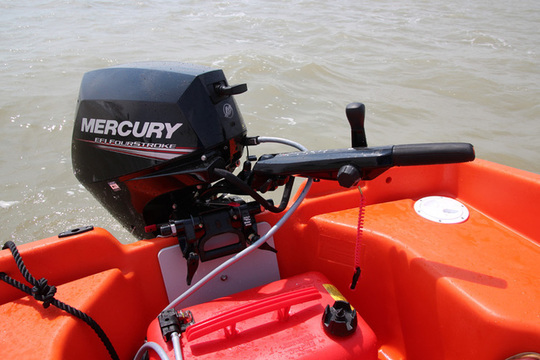
On the network side, there is a big difference in terms of autonomy and maturity. In the automotive industry, there are standardized and proven methods of intervention. In yachting, there is a greater need for assistance and support for dealers, which can be explained in part by staff turnover, youth and training.
What is also striking is the passion for the brand and the product. These are often family businesses that have a history with Mercury Marine. There is a pride in the brand. It's less about simple profitability like in car dealerships.
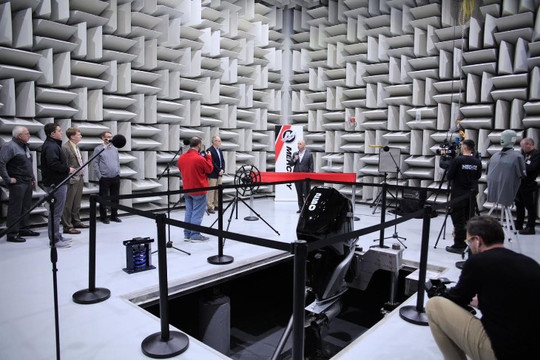
What do you think you can contribute with your experience? Do you think that yachting dealerships should follow the automotive model?
The first element is to provide training adapted to the needs to respond to the requests we receive daily, for example for spare parts. There are major differences with more references and several models for the same power. The idea is to make things simpler to give the dealer more autonomy. My role is to be dispensed with!
We also need to help the dealer structure his business and workshop. This can be done through the Mercury Marine uniform or the organization of technical information. The idea is to create business for them. We also have to go and see them in the field.
As for the rest, not everything that is done in the automobile industry should be done in the nautical industry. I am not convinced that we need big cathedrals like Audi or Mercedes. We must keep an industry made up of passion and enthusiasts.

